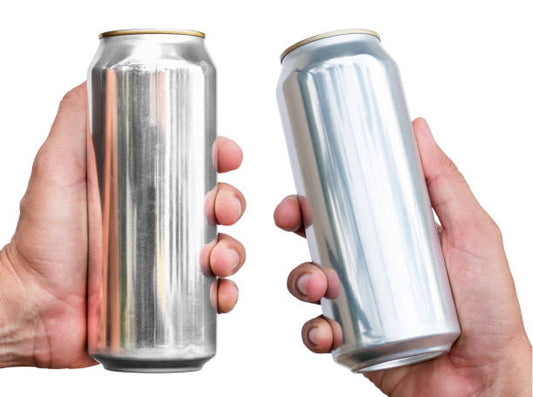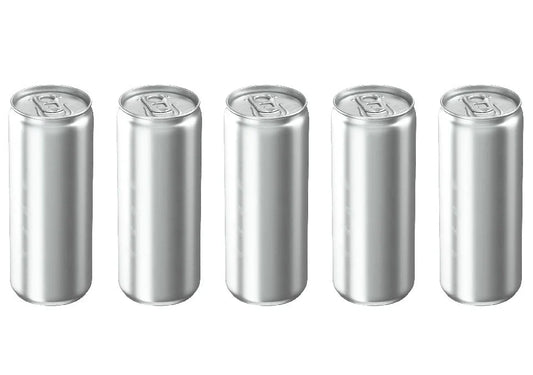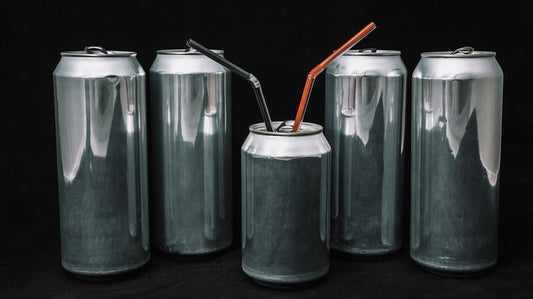Used in numerous industries, plant fiber is regarded as one of the most environmentally friendly materials. Is this a material that can truly take the place of plastic, particularly in the food packaging industry?
What is Plant Fiber?
Plant fiber is made up of cellulose and other components like lignin. Cellulose is mostly derived from plants like oil plants, cottonwood, jute, flax, or sugarcane bagasse. Plant fiber is classed according to plant origin.
Plant fiber is widely used in a variety of industries, including building, chemicals, and food & beverage.
Common plant fibers
Wood pulp
Wood pulp is the most common type of plant fiber used. And paper is the most well-known and widely used form of wood pulp. Here are some common types of paper:
- Cardboard: Made from a variety of plant fibers such as wood pulp, recycled paper, and agricultural waste.
- Kraft paper: A strong, heat-resistant paper made from treated wood pulp.
- Recycled paper: this material is made from recycled paper. This is a more environmentally friendly option than using paper that is made from virgin wood pulp.
Biodegradable Plastics from Plant-based sources
The following are two common types of biodegradable plastic that are made from plant fibers:
- PLA stands for polylactic acid. PLA is made from starch derived from a variety of plants, including corn, sugarcane, and wheat.
- PHA stands for polyhydroxyalkanoates. PHA is a bioplastic derived from bacteria. PHA is derived from a variety of plant sources, including sugars, starches, and vegetable oils.
Sugarcane Fiber
Sugarcane fiber is a material that is created from sugarcane pulp after the sugarcane pulp is extracted. Sugarcane fiber is used to make a variety of products such as food containers, straws, and so on.
Bamboo fiber
Bamboo fiber packaging items are made from bamboo. After being soaked and processed, bamboo pulp is made into sheets of material that are used to construct bamboo fiber products. Considering how quickly bamboo grows, bamboo fiber is among the materials with the best sustainability.
Wheat Straw Fiber
This is a material produced from wheat stalks after the grains have been harvested. Wheat Straw Fiber is used in the production of food containers, wraps, straws, and other items. Furthermore, wheat straw fiber is employed in the building and agriculture industries.
 Benefits of plant fiber
Benefits of plant fiber
Plant fiber packaging has numerous environmental and food concerns.
The environmental benefits
The following are some advantages that plant fiber has for the environment:
- Biodegradable: Over time, products derived from plant fiber can degrade. Consequently, utilizing plant-fiber products leads to a decrease in the quantity of trash discharged into the environment.
- Compostable: Plant-fiber goods that are compostable break down into nutrient soil, which can then be used as fertilizer to feed plants.
- Minimize plastic waste: Plastic garbage damages the environment and causes pollution since it takes decades for it to break down. Plant-fiber products decompose and biodegrade considerably faster than other products. So, plant fiber-based items reduce plastic waste and its negative environmental effects.
- Reduce your carbon footprint: Plant fiber, such as bagasse pulp, bamboo pulp, or wood pulp, is a renewable resource. This means that products created from plant fiber will require less energy to produce, hence lowering their carbon impact.
The food packaging benefits
- Keeps food safe to store at high temperatures without producing toxins: Plant fiber packaging, such as bamboo fiber or sugarcane bagasse, can endure temperatures of up to 200 degrees Fahrenheit. Customers can feel secure knowing that plant fiber packaging is free of contaminants like plastic.
- Prevent food damage: Plant fiber wrapping protects food from damage better than plastic packing. As a result, using plant fiber packaging keeps your food fresher for longer.
- Water and grease resistance: plant fiber packing can be used with greasy, soups, and other moist foods without fear of their leaking.
Regulatory Compliance
Packaging made of plant fiber is the ideal alternative for single-use plastic items. These days, many nations are struggling with the issue of single-use plastic. In Canada, the ban on single-use plastic items, including stirrers, bags, ring carriers, cutlery, and food containers, are going to take effect. It's time for food-related businesses to switch to eco-friendly packaging, such as plant fiber products.
Positive Consumer Perception
Plant fiber-based products are the best options for environmentally friendly products because they are made of sustainable materials. Consumer habits are currently shifting significantly as a result of the rise in environmental consciousness. Sustainability products, or products with eco-friendly packaging, are growing more and more popular.
Using packaging made of plant fiber will bring your business closer to customers. This helps businesses reach their marketing and sales objectives as a result of this.
 Plant Fiber: Alternative Packaging Materials to Plastic in Food and Beverage Industries
Plant Fiber: Alternative Packaging Materials to Plastic in Food and Beverage Industries
The following are some sustainable packaging made from plant fiber used in the food and beverage industries.
What are the materials used in fiber-based packaging?
The materials used in fiber-based packaging are primarily derived from plant fibers including:
- Wood pulp
- Bamboo pulp
- Sugarcane bagasse
- Wheat straw
Sustainable packaging for food made from plant fiber
- Food container: Food container: Two popular plant fiber-based products are sugarcane and bamboo fiber bowls. Due to their heat resistance, both of these products can help keep food fresher longer. At the same time, both of them are completely compostable at home, which aids in the reduction of environmental pollution.
- Paper cups: Paper cups are an extremely familiar product, replacing plastic cups that are easily found in many stores, cafes, and supermarkets because of their high applicability and convenience. Paper cups can be made from recycled paper or kraft paper, helping to reduce environmental pollution.
- Food utensils: A variety of materials, including bamboo and sugarcane fiber can be used to make food utensils. This is a sustainable replacement for plastic cutlery.
Solutions for packaging of beverage made from plant fiber
- Sugarcane straw: Sugarcane straws produced from long-lasting, eco-friendly bagasse. Additionally, unlike paper straws, sugarcane straws do not become soggy in water. This is an excellent choice for a wide range of beverages, including coffee, tea, thick drinks, chocolate, and so on.
- Sugarcane beer rings: Beer rings manufactured from sugarcane bagasse are a new product in the food and beverage business. Beer rings made from sugarcane bagasse have numerous advantages over plastic beer rings, including durability, no hand pain, compostability, and less environmental impact.
Is fiber packaging right for my business?
Plant fiber products are an option worth considering if your business uses plastic for food packaging, such as food containers, straws, bowls, clamshells, beer rings, etc.
Plant fiber-based products have numerous advantages, including being strong, safe for users, environmentally friendly, and in compliance with current laws and regulations. Plant fiber-based products are the way of the future.
Plant fiber food packaging products at supplier Kimecopak
Kimecopak, one of the suppliers of sustainable packaging, offers the following plant fiber-based products:
To-go-box
- Bamboo Fiber Bowl
Kimecopak now offers a bamboo fiber bowl 32 oz. The Bamboo Fiber Bowl can be used for a wide range of foods, including hot, cold, wet, and dry foods. The Bamboo Fiber Bowl keeps food fresh without coatings or chemicals. Bamboo fiber bowl products are a great alternative to plastic bows.
- Kraft Paper Boxes and Paper Cups:
These are two common paper-based products. Kraft Paper Boxes and Paper Cups are durable, leak-proof, and great for a wide range of foods, including hot, cold, wet, and dry foods. The Kraft Paper Box and Paper Cup can be microwaved and freezer safe. These two categories of products are appropriate for restaurants, cafes, convenience stores, or any food-related enterprise.
- Sugarcane Clamshell
Kimecopak's Sugarcane Clamshell is made from sugarcane fiber and has several amazing uses, including the capacity to keep food fresher than plastic container, being biodegradable, and being home-compostable. This product is ideal for a wide range of food and can be used in restaurants, cafes, bakeries, and so on.
Learn more about to-go-box: https://www.kimecopak.ca/collections/to-go-box
Straws
- Sugarcane Straws
Sugarcane Straws are available in two sizes: 8mm and 12mm. They have a number of advantages over plastic straws. This sugarcane-based product is eco-friendly, compostable at home, and doesn't get soggy even in hot water. Sugarcane Straws are an environmentally beneficial solution that should be considered by any food-related business.
- Biodegradable Straws
Biodegradable Straws is a well-known plant-based product on the market. Kimecopak Biodegradable Straws are sturdy, do not get wet in hot water, and have a large diameter, making them perfect for many thick liquids or boba tea.
Learn more about Kimecopak’s Sugarcane Straws and Biodegradable Straws at: https://www.kimecopak.ca/collections/biodegradable-straw
Sugarcane Beer Rings
One of the newest goods on the market is sugarcane beer rings, which are meant to replace plastic beer rings. Sugarcane beer rings are durable, are not harmful to the user's hands, and are compostable at home.
Learn more about Sugarcane Beer Rings: https://www.kimecopak.ca/collections/beer-rings
For companies, eateries, cafés, etc. in the North American market, Kimecopak offers wholesale and substantial amounts of reliable eco-packaging and plan fiber-based packaging supplies. Kimecopak also offers warehouse solutions, customized logos, shipping, and a variety of business incentives. For more information, please contact halo@kimecopak.ca, call +1 204-891-1417, or visit Kimecopak's Facebook page.









